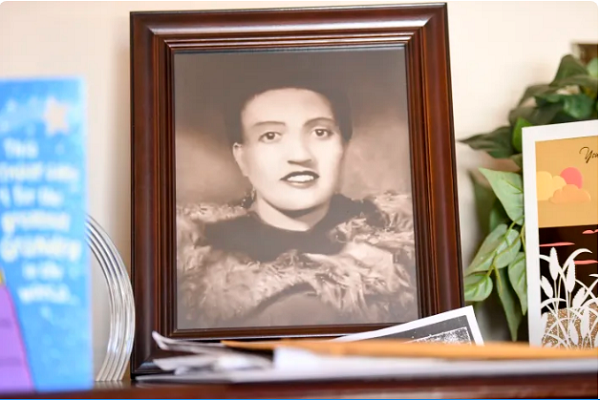| |||||||||
|
|||||||||
|
By:
Jayla Whitfield-Anderson | |||||||||
| Posted:
Jun,16-2023 02:58:36
| |||||||||
Leaders of the Congressional Black Caucus, civil rights attorney Ben Crump and the family of Henrietta Lacks — whose cells, known as HeLa cells, were stolen and harvested without her consent in the 1950s — called for Lacks to be posthumously honored with the Congressional Gold Medal for her contribution to science and medicine.
The award is one of the most prestigious that a citizen can receive from Congress and has been given to fewer than 200 people.
“What we’re attempting to do today is make sure her passing is not forgotten, it’s not buried, but rather held high for the nation to be able to look at and see her as a daughter of America,” said Rep. Kweisi Mfume, D-Md., who said during a press conference at the Capitol on Wednesday that he plans to formally introduce the bill on the House floor.
Lacks’s cells were the first human cells to multiply outside the body, and her unknowing contribution to medicine has played a vital role in the polio vaccine, cloning, in vitro fertilization, gene mapping and much more.
“I’m not surprised at all that it was a strong Black woman who would be able to have cells strong enough that it would generate outside the human body,” Crump, who in 2021 filed a lawsuit against a biotech company that allegedly sold and mass-produced tissue taken from Lacks, said at the presser.
Rep. Sheila Jackson Lee, D-Texas, says acknowledgment of Lacks’s contribution to medicine is long overdue.
“The work she did through her own incredible cells, she did that work. She changed lives. She allowed me to get a COVID vaccine, which might have kept me from losing my life,” Lee said.
Who was Henrietta Lacks?Lacks, a mother of five, was diagnosed with cervical cancer in 1951 after a visit to the Johns Hopkins Hospital, one of the few hospitals that treated poor Blacks during the 1950s. “They did not treat her for cervical cancer. They butchered her, they put radiation rods inside of her and they stole her cells,” Crump said. During her visit, a sample of her cancer cells was stolen and sent to a research lab, where doctors discovered that Lacks's cells were unique. “They are super-aggressive cells,” Gail Jarvik, professor of medical genetics at the University of Washington, told Yahoo News, adding that they were historic because they were “the first cells to be ‘culturable,’ in other words, to be kept alive.” A year after her cells were taken, Lacks died from cervical cancer at the age of 31. But over the past seven decades, her cells have continued to multiply and impact health care. “The same aggressiveness with which the cancer killed Henrietta Lacks made these cells easier to grow in a culture situation,” Jarvik said. Every 24 hours Lacks’s cells regenerate, according to Crump, and they have contributed to research for drugs used to treat cancer, HIV, hemophilia, leukemia and Parkinson’s disease. “Henrietta Lacks’s life, death, body, cells and story has affected just about every person on the planet since the 1950s. If you have ever taken medication or had a vaccination, a treatment for cancer, IVF, HIV — just about anything, really — it has been tested on Henrietta’s cells,” Mojisola Adebayo, who wrote “Family Tree,” a play honoring Lacks, told BBC News.‘Medical racism’Advocates say experiences like that of Lacks explain the high degree of distrust in the medical system among minority groups. According to the Robert A. Winn Diversity in Clinical Trials Award Program, 80% of individuals involved in clinical trials are white, though white people constitute just 58% of the U.S. population. Experts have said the lack of diversity in trials is due to “a mistrust of the medical system by many underrepresented minority populations in the United States, and there’s historical events that have caused that,” John Damonti, the president of the Bristol Myers Squibb Foundation, which focuses on health equity, told Yahoo News in February. “In 1951 there was medical racism running rampant in America, whether it was the victims of the Tuskegee syphilis experiment, whether it was women who suffered the Mississippi appendectomy like Fannie Lou Hamer,” Crump explained Wednesday, adding that it is necessary that Lacks’s contributions are recognized. Civil rights attorney Ben Crump, center, with lawyer Christopher Seeger, right, and members of the Henrietta Lacks family at a recent news conference. (Kenneth K. Lam/Baltimore Sun/Tribune News Service via Getty Images)
Experts say Lacks’s treatment had a direct impact on underprivileged groups' trust level in the medical system. “This is hugely problematic, because in order to do the best science, and do science that benefits everybody, we need everybody engaged in medical research,” Jarvik said.
In 2019, Congress passed the Henrietta Lacks Enhancing Cancer Research Act, which requires government agencies to review and address participation in federally funded cancer clinical trials for minorities.
The law requires clinical trials to expand “in such a way that we don’t have another instance where we lose a life like Mrs. Lacks because there was not the right sort of inclusion,” Mfume said.
Civil rights attorney Ben Crump, center, with lawyer Christopher Seeger, right, and members of the Henrietta Lacks family at a recent news conference. (Kenneth K. Lam/Baltimore Sun/Tribune News Service via Getty Images)
Experts say Lacks’s treatment had a direct impact on underprivileged groups' trust level in the medical system. “This is hugely problematic, because in order to do the best science, and do science that benefits everybody, we need everybody engaged in medical research,” Jarvik said.
In 2019, Congress passed the Henrietta Lacks Enhancing Cancer Research Act, which requires government agencies to review and address participation in federally funded cancer clinical trials for minorities.
The law requires clinical trials to expand “in such a way that we don’t have another instance where we lose a life like Mrs. Lacks because there was not the right sort of inclusion,” Mfume said.
Lacks’s ‘selfless’ legacyDespite the history of Lacks’s stolen cells, in 2013 her family allowed the National Institutes of Health to release the genome sequence of her HeLa cells, which allows medical researchers access to the entire set of cells. | |||||||||
|
Source:
Yahoo News
| |||||||||
|
||||||||||||||||||||||||||||||||||||||||||||||||||||||||||||||||||||||||||||||||||||||||||||||||||||||||||||||
|
||||||||||||||||||||||||||||||||||||||||||||||||||||||||||||||||||||||||||||||||||||||||||||||||||||||||||||||


.jpg)




